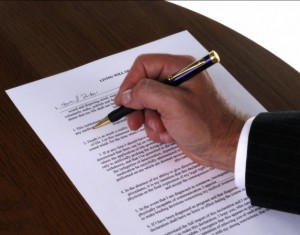 If you have been named as an executor in a will, or have been appointed as an administrator by the
If you have been named as an executor in a will, or have been appointed as an administrator by the
court to deal with an estate, then you will have a number of key tasks to perform. This includes applying for probate, getting the estate valued, collecting any money owed and paying any outstanding debts of the person who has died, paying inheritance tax, paying for the funeral, and distributing the remainder of the estate to the beneficiaries. We cover all of these in our guide to wills and estates.
You will also need to return a number of key items and tell a number of key people. We list both of these in a handy check list for you below. We recommend that you keep a record of anything you return and everyone you tell.
Things to return
As the executor or administrator of an estate, you will need to return the following items (if applicable) with a covering note explaining what has happened and the date the person died.
- Forms or cheques issued as part of a benefit claim, including Child Benefit payments, to the Jobcentre that issued them. Jobcentre Plus should not make payments after someone has died.
- The person’s passport – cut off the top right-hand corner before posting
- The person’s driving licence
- The registration documents for the person’s car
- Membership cards of any clubs, associations or trade unions.
- Library books and tickets
- National Insurance papers
- Any NHS equipment eg. wheelchairs, hearing aids, artificial limbs
- Disabled parking permits to the relevant local authority
People to tell
As the executor or administrator of an estate, you will need to tell the following people (if applicable).
- The Bereavement Register to remove the person’s name from mailing lists
- The hospital the person was attending for medical appointments
- The person’s doctor
- Anyone providing home-help services or meals on wheels
- HM Revenue & Customs
- Jobcentre Plus or The Pension Service if the person was in receipt of benefits or the State Pension
- The person’s employer and trade union if they were working
- The person’s school or college if they were in education
- The person’s car insurance company. Anyone insured to drive the car under the person’s name may no longer be legally insured to drive the car.
- The person’s gas, electricity, telephone, internet, mobile and water suppliers
- The person’s local council – this may involve telling more than one department, eg. council tax, housing, social services
- The person’s bank, building society or insurance company
- The Post Office, so they can redirect the person’s post if necessary
For more information about wills and estates, please click here to read our online guide.
